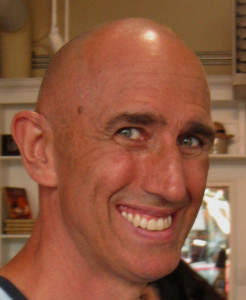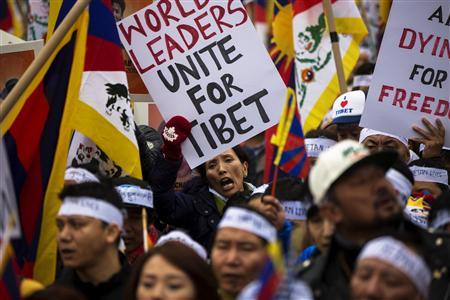
A couple months ago a review copy of the book How to Think More about Sex came to the Trike offices (we didn’t order it, I swear). I remember looking at it quizzically—I’m feeling literary today, so let’s say I looked at it with a furrowed brow—thinking, why would anyone want to think more about sex? Certainly we could all stand to think a little less about it.
Unless, of course, we’re talking about serious sexual abuse. It’s one sexual topic that we could all stand to think, and to talk, much more about, especially when it’s occurring under our noses in our very own sanghas. So many bows to Giko David Rubin, who has written a startlingly honest and moving account of the inappropriate sexual behavior of Joshu Sasaki Roshi, one of the first Asian teachers to come to the West, over at Sweeping Zen this week. Rubin’s piece shows us, sometimes in painful detail, exactly what has gone on with Joshu Roshi and the Rinzai-ji community:
From many stories I was told by men and women, and from my long experience translating, I believe Joshu Roshi sometimes used the way he spoke in sanzen, and even in teisho, to coerce women into giving him sex. He implied that resisting his advances was resisting the cosmic activity itself. He also implied surrendering to his requests for sex may lead to the experience of absolute cosmic unity. He punished some women who would not capitulate to his demands by giving them little or no attention. He coerced women by saying, “This is the only way I can teach you,” “You should overcome your ego,” “If you don’t have sex with me, you are not manifesting one true nature,” “You say ‘my body,’ but that is the thought of your incomplete self,” “You are the only one I ever touch,” “You have the best energy.” …
When I “came out” and raised my concerns about Joshu Roshi’s sexual conduct some Oshos told me I had no Zen understanding and should be beaten with sticks; I was an arrogant blind fool; I had “kindergarten understanding” and obviously had never passed even one koan. Joshu Roshi told me I would never get enlightened if I thought about these things. I was told by one Osho and one senior student I would be blamed for Joshu Roshi’s death if I tried to make him change his behavior, and that I would be responsible for ruining his legacy. “You are killing him!” was shouted at me more than once. Another Osho told me that Joshu Roshi had demanded I do a special repentance ceremony if I ever wanted to practice with Joshu Roshi again. When I asked the Osho if he had argued my case to Joshu Roshi, or even asked for an explanation he said he hadn’t. I was banned from coming on the property of one Zen Center, and banned from teaching at another. Joshu Roshi began calling me “attached to honesty,” and “bakashoujiki” (meaning “stupidly honest”) to others and to me.

Lately we’ve been seeing a lot of discussion in the Buddhoblogosphere about sexual relationships within the sangha or between a teacher and student(s). Some of it is good, some of it is bad, and some of it makes you wonder why you follow the going-ons in the Buddhoblogosphere at all (maybe that was just me). If you want a solid summary, the blogger NellaLou at “Smiling Buddha Cabaret” has written one of the fairest and most balanced perspectives we’ve seen. You can read it here.
Leaving the sexual realm behind, this week has been a big one for Tibetan self-immolation news. Let’s start with the worst of it. Three more Tibetans have self-immolated since last Friday. In the usual Chinese fashion, the response, published in the state-run newspaper Global Times on Monday, has been a criminal crackdown on those who help plan, organize, incite, or help others self-immolate. Anyone found engaging in those activities will now be arrested and tried for “intentional homicide.” Additionally, “those who parade a corpse through the streets or gather to watch the immolation without actively stopping the suicide will also be subject to criminal prosecution.”
At the same time, the Tibetan resistance is going strong. On Monday, thousands gathered in front of the United Nations in New York in a solidarity rally for Tibet. On the same day, the hackers/activist group Anonymous started Op_Tibet, an organized cyber attack on the Chinese government and various Chinese publications. It’s still going strong, according to their Twitter account @AnonymousTibet. You can watch their statement of purpose below, and if you’re the “hacktivist” type, join in on the action here.
In a surprisingly vehement statement of nonsupport for Tibetan self-immolation, the Hindustan Times published an interview on Tuesday with Trinley Thaye Dorje, one of the claimants to the title of 17th Karmapa. He says in it, “I am shocked that Tibetans are taking such actions. I strongly feel this should stop, this is definitely not a practice of Buddhism.” I can’t help but feel, however, that the interview as a whole is rather disingenuous. He responds to a question about whether China’s new leadership will change things for the better in Tibet with, “I have very little knowledge or interest in politics. I am a spiritual practitioner.” But surely he must know what kind of political statement it is to actively condemn the self-immolations. What can I say—read the interview here and decide for yourself.